All four games ended in a draw, with the tournament leader Ian Nepomniachtchi making a lucky escape in his encounter with Hikaru Nakamura
Ian Nepomniachtchi is still in the lead, with 3.5/5, while Fabiano Caruana trails him by half a point. The middle group is made of Hikaru Nakamura, Richard Rapport and Jan-Krzysztof Duda, who are on 2.5/5. Ding Liren, Teimour Radjabov and Alireza Firouzja are all on two points.
The first move of the round was made by Manuel Alvarez Escudero, a 100-year-old chess player from Madrid and one of the oldest chess players alive. Just a few months ago, he played (and won) for his team in a Madrid regional league. Today he made the ceremonial move in the game Firouzja vs Duda. Firouzja, for whom he played 1.e4, is 81 years his junior.

There were no easy draws in the fifth round of the 2022 Candidates as all players held their own and clinched half a point from their opponent. This was a day of great expectations, psychological battles and lucky escapes.
The luckiest man of the day is Ian Nepomniachtchi. The tournament leader was playing as Black against Hikaru Nakamura. In the Petrov, blitzing most of his opening moves, Nepomniachtchi made a couple of mistakes and ended in a weaker position, where White was chasing his queen around the board while at the same time developing and organising an attack. However, Nakamura failed to find the decisive continuation, let his advantage slip away and eventually decided to accept a repetition of moves. A lucky save by Nepomniachtchi.
Richard Rapport must be very satisfied after drawing as Black against one of the tournament favourites and the former contender for the title of World Champion, Fabiano Caruana. In the Taimanov variation of the Sicilian, despite White playing a relatively rare move early on, Caruana didn’t manage to get much. In fact – even though he is usually the player who confidently blitzes his openings, this time, it was Caruana who spent a lot of time on the opening. A sharp position emerged on the board with both sides pushing on opposite flanks. However, both probably thought that in this early stage of the tournament, where they are both standing well, showing their appetite for risk is not yet needed. Both players opted for a forced line, leading to a draw.

The longest and possibly the most promising game of the day in terms of bringing a decisive outcome was the duel between the two players who have been on the bottom since round one. Teimour Radjabov was leading white pieces against World No. 2 Ding Liren. Both have been struggling in the tournament with three draws, and a defeat, and both were looking for their first break. It seemed that Ding was finally about to get rid of the shadow hanging over him since the last Candidates as he got into a better position against Radjabov in the Catalan. According to the computer analysis, his chances seemed promising. However, following Radjabov’s risky play right before the time control, Ding dropped the advantage with a control 40th move. After moving to a drawn rook endgame, the two quickly agreed to split a point.
Alireza Firouzja is another player who had very high hopes for today’s game. Playing as White against an opponent, he leads four to zero; he was hoping to bounce back after a loss in round four to Ian Nepomniachtchi. However, the highly anticipated duel between the two youngest players of the Candidates, Alireza Firouzja (19) and Jan-Krzysztof Duda (24), ended with a disappointment for White. Duda opted for a line in the Petrov Defence where Black is slightly worse but solid. More importantly, the position that developed was such that Firouzja could not let his creativity loose. Despite White’s attempts to push forward and try and create some activity, Duda didn’t allow it. In addition, Firouzja’s ambitions to find a breakthrough cost him a lot of time, and he was in danger of ending in zeitnot. Following an exchange of several pieces, the two ended in a dead-even queen endgame. A draw was agreed upon after threefold repetition.
Here follows a closer look at the games from round five of the Candidates.
Fabiano Caruana vs Richard Rapport: Disappointment and resilience
Fabiano Caruana was a slight favourite in this game. He leads Rapport three to one in victories, has more experience in the Candidates and at the highest level overall, and was leading the white pieces.
In the Taimanov variation of the Sicilian, Caruana opted for a rare line with 6.g4, but that didn’t surprise Rapport. He responded quickly with the move 6…Nge7. Unusually for Caruana, in this game, he spent much more time on the opening than he normally does, which suggests that his opponent managed to unsettle him with the choice of moves.
Instead of castling and securing their kings – as the basic chess rules say – the two launched their pawn advances: Caruana on the kingside, Rapport on the queenside.
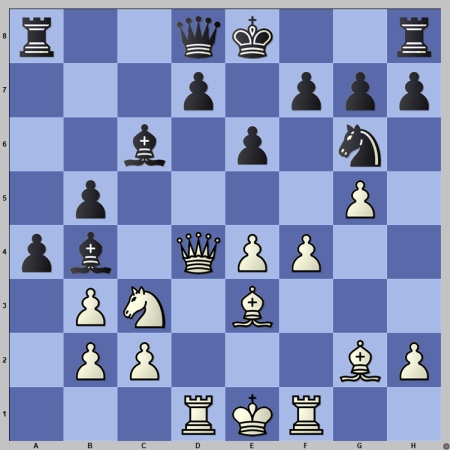
After White’s move 16.Qd4, Rapport had chances to exert more pressure on White by taking on c3, moving his king to safety and then pushing in the centre, although this continuation looks double-edged.
Instead, he opted to put his queen on a5 and allowed White to take on g7 starting a sequence of moves that led to a forced draw. After making a series of ‘only moves’, the two ended up in a position where Black organised a perpetual attack on the White’s queen, so they split a point.
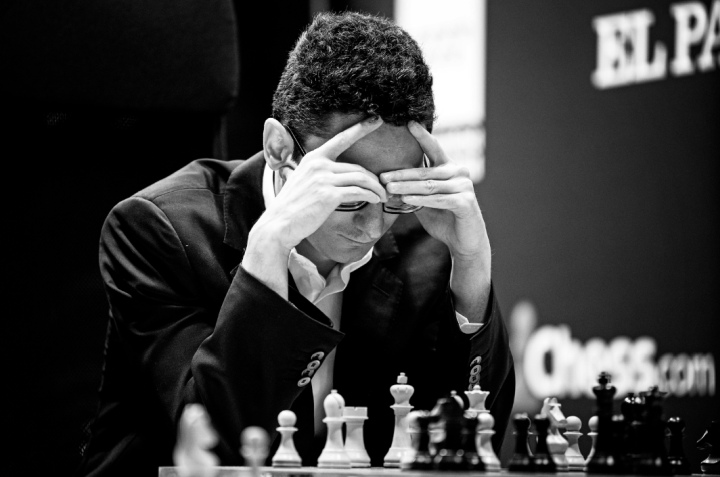
It is a good result for Rapport, who showed remarkable resilience and managed as Black to hold one of the tournament favourites to a draw. While Caruana might be less happy with the outcome, both players are performing well and building a solid foundation for the rest of the tournament.
Teimour Radjabov vs Ding Liren: Lost hopes
Radjabov and Ding were at the bottom of the table from round one, with each on minus one. If either managed to score a victory in today’s game, it would have been a big break for the prospects of the winning side and a giant fall for the other.

Radjabov had the initiative of the white pieces, Ding Liren is World No. 2. The two have so far played each other ten times in classical games: seven ended in a draw while Ding won two and Radjabov won one. However, the Candidates are a class of their own, and the previous games don’t count for that much.
In the Catalan, Ding played a logical novelty 11…c5, trying to force White to clarify his plans in the centre.
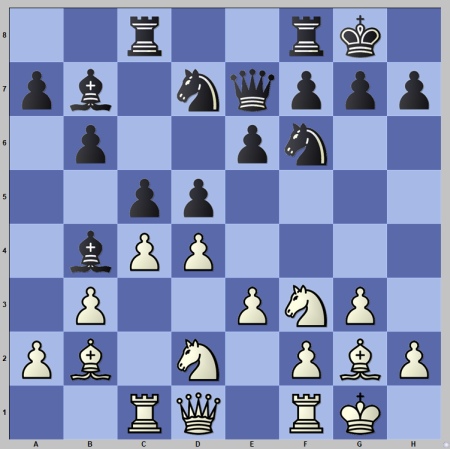
In the subsequent manoeuvring, White overcommitted, advancing his central e- and f-pawns and overstretched his defensive line. His position was holdable, but Ding skillfully created new weaknesses in White’s camp, planted his knight on g4 and got the upper hand.
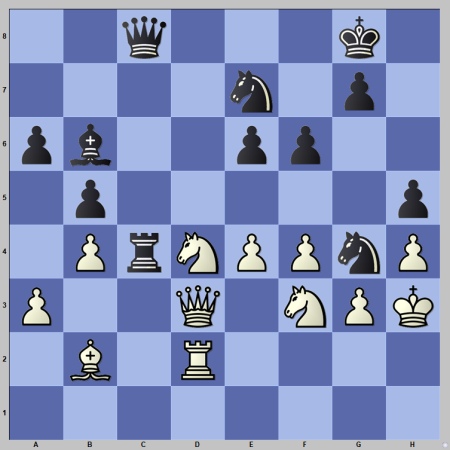
Right before the time control, Radjabov decided to force the events and pushed 39.e5. Surprisingly, this risky approach paid off as Ding first missed 39…f5 and after 39.fxe5 40.fxe5 failed to find a strong continuation 40…Bxd4, which promised him a sizable advantage and opted for an innocuous 40…g6, after which the worst was behind White.
Following an exchange of pieces in the centre, the two progressed to an absolutely even rook endgame. Unlike in the previous drawn positions seen in this edition of the Candidates, the players decided not to test each other’s knowledge of dead draws and agreed to call it a day.
Radjabov again managed to equalise, but that is hardly what a player of his level should hope for when playing with white pieces. As for Ding Liren – he still seems to be under the spell cast on him since the previous Candidates, struggling to find his game. It will surely make him look more like a target for other opponents, making things even more difficult for him.
Alireza Firouzja vs Jan-Krzysztof Duda: A psychological duel
Needless to say that this game was important for both players, especially on the psychological front, but for Firouzja, it meant more.
In all of his previous games, Duda was playing very confidently and strongly. He needed to keep that performance and – should circumstances allow it – grab a chance and claim a first victory. For Firouzja, victory seemed even more important: in the first four rounds, he played three times with black pieces, and in Round 4, he suffered a loss to Ian Nepomniachtchi in a line of his own choosing. Now Alireza was up against the opponent he has an excellent head-to-head record – 4:0, with most of the games played recently. He was also leading the white pieces. However…
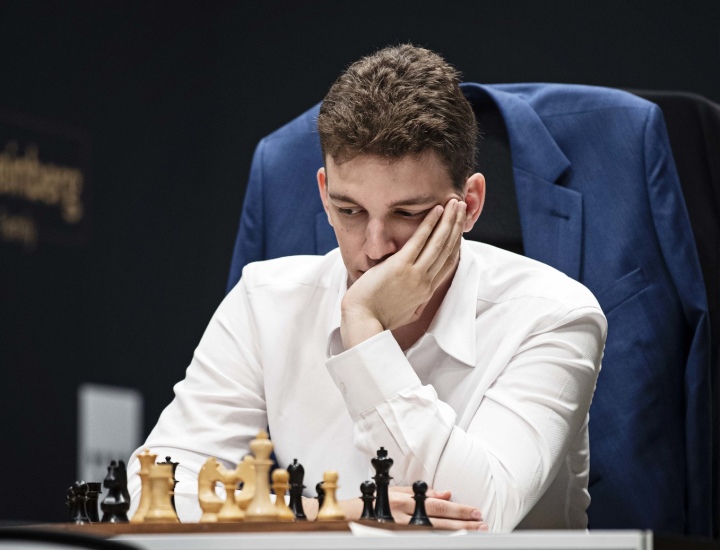
Duda opted for a solid Petrov Defence. One of the main lines was played, and Duda had a lot of experience as Black in this opening.
Firouzja seemed somewhat surprised with the line chosen by Duda, but Black’s goal seemed to have been different from what may have been logical: instead of going for a sharp line or something which offered him the best chances to play for victory, Duda opted for a line in which he was slightly worse but solid.
Firouzja was looking for a dynamic, sharp position to unleash his creativity, and Duda was not planning to allow that.
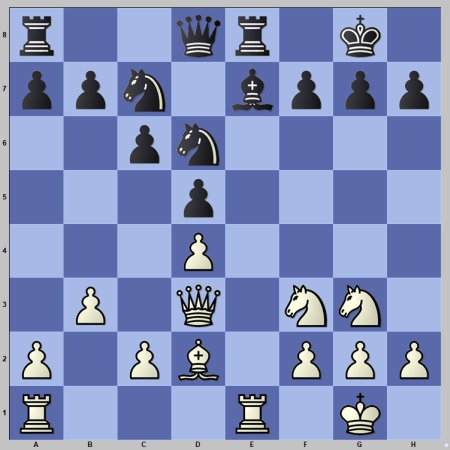
Following Black’s 14…Re8, instead of more active a5 or f5 moves, Firouzja was given a small opportunity to get some action, and he attacked the centre with 14.c4. Firouzja was trying to keep the ball rolling but did not get anything tangible.
The Frenchman spent a lot of time thinking, but the magical solution just wasn’t there. He was trying, pushing, scratching – but not getting anything. Plus, he was getting considerably worse on time.
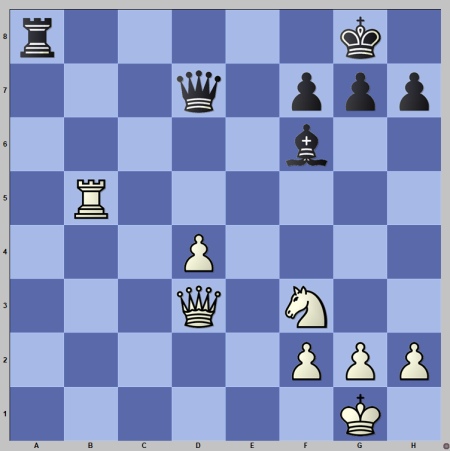
White eventually got to Black’s b5-pawn, but Duda immediately regained it with nice tactics 28…Bxd4! employing the weakness of White’s first rank.
The opponents ended with three pawns each in the king’s castle and the queens in a dead-even draw. But nobody uttered a word – the repetition of moves confirmed the obvious. It was a draw after some two and a half hours of play.
Hikaru Nakamura vs Ian Nepomniachtchi: A lucky escape
It was a duel between two veteran heavyweight superstars: with two victories each and five draws between them, it seems they were evenly matched.

Nakamura opened with 1.e4 and paused a bit after Nepomniachtchi responded with – 1…e5, which he used in his World Championship match. The pundits were suggesting that it seemed Nakamura was expecting 1…c5, but in Ian’s position, solid Petrov Defence looked like a more logical choice.
Nakamura was spending more time than Nepomniachtchi on the opening moves, although he had tested this position in his previous games.
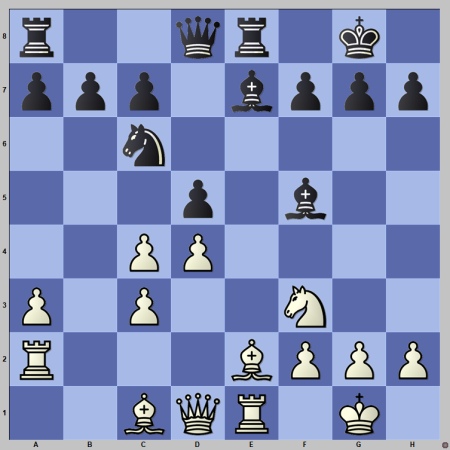
In this well-known position, Nepo opted for a rare 14…Bf8, eyeing the queenside and opening the e-file for the e8 rook. It looks unnatural (Carlsen called it ‘weird’), but Nakamura had to prove it.
After a couple of natural moves, Nepo came up with an original but questionable idea of putting his queen on e4, aiming for b1.
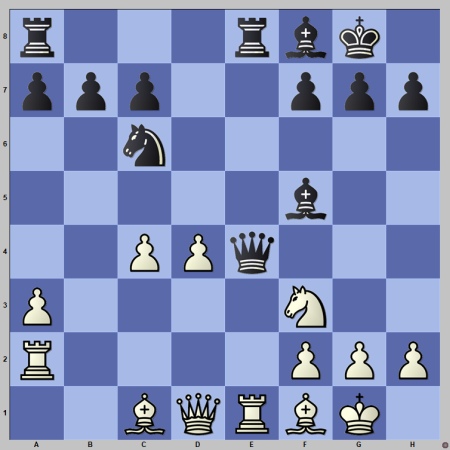
After a minute and a half of thinking, Nepomniachtchi changed his initial plan and put the queen on g4. However, after simple and natural 18.h3! Ian got into hot water as Hikaru started chasing Black’s queen all over the board. Nepomniachtchi was now spending more time thinking, but it didn’t get him much result.
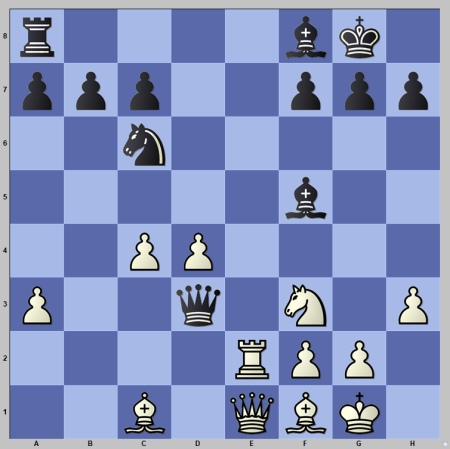
After repeating moves, the opponents reached a critical position. Here Nakamura had a very strong continuation 23.Nh4, which offered him a big, maybe decisive advantage. Luckily for Ian, he opted for 23.Re3, which was also good but not deadly.
Two moves down the road, Hikaru made a slightly imprecise move with 25.Nd2, while it seemed he would have had more chances with 25.Nd4.
As a result, Black got some respite and evacuated his queen to f6. Still, White could have continued pressing for a win, but in the following position, Nakamura dropped the advantage completely.
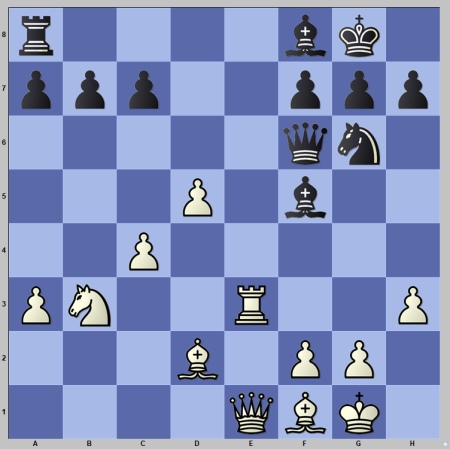
Instead of playing 28.Bc3 (a reasonable alternative is 28.g3) exerting further pressure on the black queen – which by this point had made 10 moves on the board(!) – White decided to go a long way round, with 28.Na5. Hikaru did ultimately get his bishop to c3, pressuring the a1-h8 diagonal, but a bit too late.
There was a lot of life in the position, but Nakamura had 11 minutes on the clock, while Nepomniachtchi had 40. Shaking his head, Nakamura’s face said it all: he wasn’t happy with his chances, and he was nine moves away from the first time control. In the end, he opted for repetition, and the two ended up splitting a point.

An important save and a lucky escape for Nepomniachtchi.
Round six of the Candidates starts on Thursday the 23rd of June at 3 PM CEST at the Palacio de Santona in Madrid.
The pairings of round six are as follows:
Teimour Radjabov vs Richard Rapport
Alireza Firouzja vs Fabiano Caruana
Hikaru Nakamura vs Ding Liren
Ian Nepomniachtchi vs Jan-Krzysztof Duda
For more information please visit: https://candidates.fide.com/
Text: Milan Dinic
Photos: FIDE / Stev Bonhage
2022 Candidates Tournament Partners:







